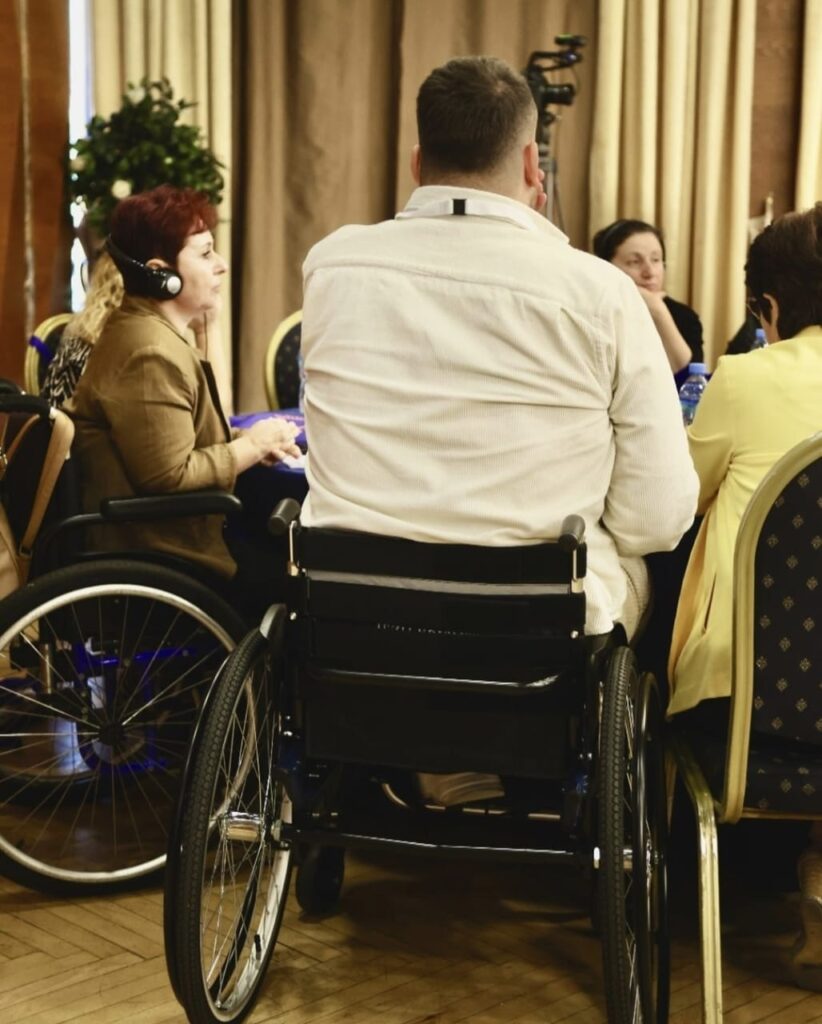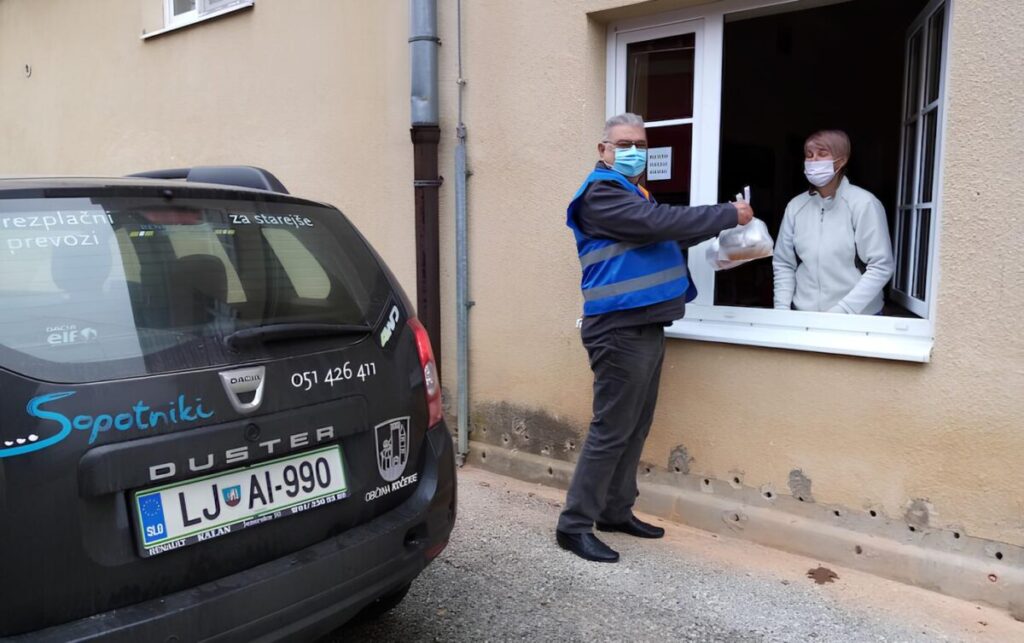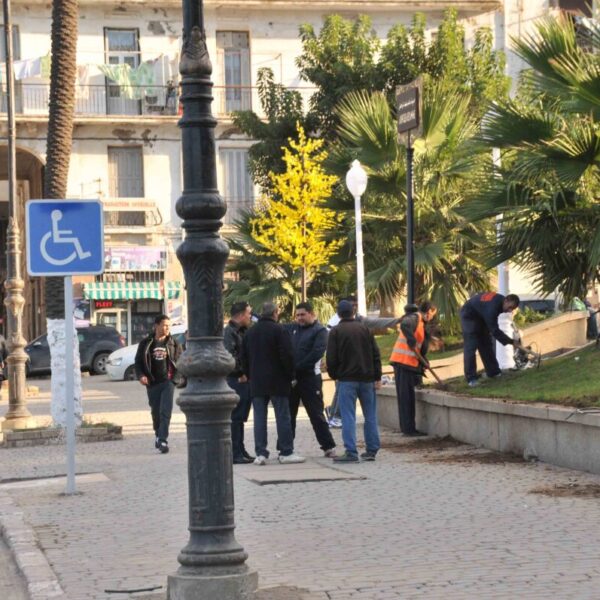What if equality of rights started with the ability to move, work, receive care, and be supported? Across the Mediterranean Europe, initiatives are inventing new paths for living together. Their common point: making society more navigable, both literally and figuratively, for those who are too often sidelined. They lay the foundations of concrete, active solidarity, rooted in real needs.
This article, about living together is a summary of 3 articles published in 22-med, available in the 11 languages used on the site.
Work as an opportunity: the story of the integration of people with disabilities: Rajmonda Basha - Albania
Volunteer drivers for elderly people without cars: Larisa Daugul - Slovenia
El Amel wants to make Algiers more compatible with disabilities: Tarik Hafid - Algeria
Far from grand speeches and theories, sometimes it’s a simple journey, a ramp placed on a sidewalk, a work contract that changes everything. Where fundamental rights are undermined by physical, social, or symbolic barriers, some associative, civic, or institutional structures work to bridge the gaps. Living together also means making the rules of the game fairer and the environments more humane.
A solidarity built from the ground up
In many cases, the answer does not come from above. Or not only. At the origin of many projects that reshape the daily lives of vulnerable people are citizens, associations, or collectives that start from reality, from need, from the blind spot. This is the case of Marko Zevnik, who, in Slovenia, launched the Sopotniki project after measuring the isolation of his elderly neighbors in a village poorly served by transport. What initially was just an informal helping hand has become a structured organization, mobilizing more than 300 volunteers in 19 cities across the country.
Beyond the journeys, Sopotniki has created a true local ecosystem, involving municipalities, restaurateurs, and cultural centers. “We did not want to create a centralized call center, but to be present locally,” explains Zevnik. Coordination takes place at the level of each city, with particular attention to informal needs: cultural outings, friendly meetings, moments of connection. The journeys become spaces for meeting, the cars places of shared stories. It is not just a service; it is a social fabric in motion.
When the city becomes an obstacle
But not everything happens in remote rural areas. In the very heart of cities, invisibility takes on other forms. In Algiers, it is the public space that rejects, blocks, and makes life impossible for people with reduced mobility. Wheelchairs stuck, sidewalks cluttered, inaccessible toilets: daily life can quickly become an obstacle course, sometimes dangerous, often humiliating. “It must be understood that accessibility reinforces dignity,” insists Hazia Rezig, president of the El Amel association, which has been advocating for over thirty years for a city accessible to all.
In the popular neighborhood of Bab el Oued, this association has managed, not without difficulty, to install ramps and appropriate signage. A concrete advancement, albeit limited, but one that exists and can spread to other municipalities. Because accessibility, here, is not a favor: it is a right, enshrined in law since 2002 but rarely applied. And to raise awareness of the urgency, El Amel organizes situational exercises: “Able-bodied people who travel 500 meters in a wheelchair come out with injured hands. But some come out transformed,” recounts Abdelghani Kayouche.
The association also works on the educational front, by creating accessible restrooms in three establishments in Bab el Oued. A project funded by private actors, proving that mobilization can extend beyond the activist circle. Here again, the challenge is to open the school to everyone, unconditionally. “Going to the bathroom in a wheelchair is a mundane act for some, a daily obstacle for others,” reminds Rezig. A logistical detail? No: a fundamental symbol of what allows – or not – living together.
Employment and recognition: a lever for inclusion
Another decisive area for real equality is that of work. In Albania, authorities have begun a shift with a law that came into effect in early 2024, requiring companies to hire a quota of people with disabilities. If they do not comply, they must contribute to a public fund. Behind this incentive lies a fact: the employment rate of people with disabilities remains dramatically low. In 2023, they were three times more likely to seek employment than in 2022.

The legislative text requires public and private institutions to follow a proportionality rule. But the success of this policy does not depend solely on numbers. It also relies on a change in perspective. “Many companies still do not understand the value that these different employees can bring,” laments a sector actor. Hence the importance of partnerships with specialized associations, which support candidates and raise awareness among employers.
Testimonials collected on the ground show that when the opportunity is given, it is often transformed. Ema, recruited by an Italian company based in Tirana, shares: “I feel very good, I am respected. My company collaborated with the Association of Tetraplegics to hire two people, including me.” Kelvi, on the other hand, was hired in the health service of Fier: “Being different has not prevented me from climbing the ranks.” Experiences that restore confidence and demonstrate that inclusion is possible as long as it is supported – legally, economically, humanly.
Changing norms, not people
What these initiatives tell, each in their own way, is a shared desire to break down the walls – sometimes invisible – that separate, isolate, and exclude. True social progress does not consist of integrating marginalized groups but transforming the structures that make their daily lives difficult. Whether in rural or urban areas, in administration, transport, education, or the world of work, it is less about “dealing with disability” than about rethinking social relations, rights, and spaces.
It is not about modeling these examples or idealizing them. Each faces limits, resistances, and slowness. But each proves that it is possible to act locally, based on concrete needs, and to evolve society through capillarity. Not by adding devices at the margins, but by changing the norm so that it becomes truly inclusive.
In short, a more navigable society is taking shape. Not a “easier” one, but a fairer one. A society that refuses to consider certain bodies as anomalies, certain ages as burdens, certain differences as problems to be managed. Living together is not simply coexisting. It is ensuring that everyone has their place, without conditions or exceptions.

Cover photo: A program for the installation of ramps and inclined planes has been carried out in the main streets of Bab el Oued @A.Kayouche
